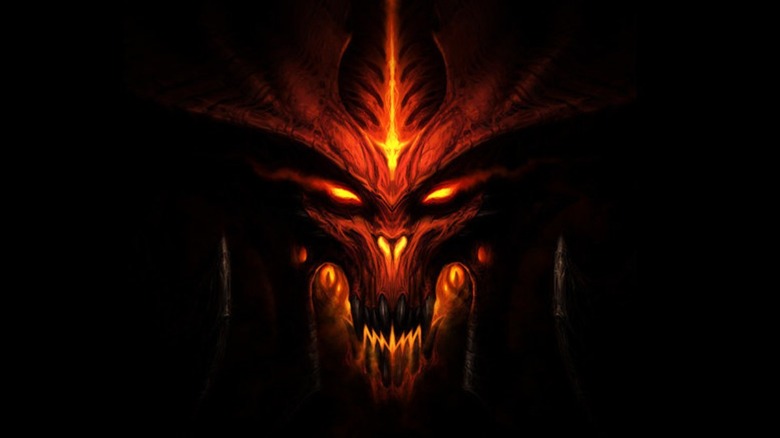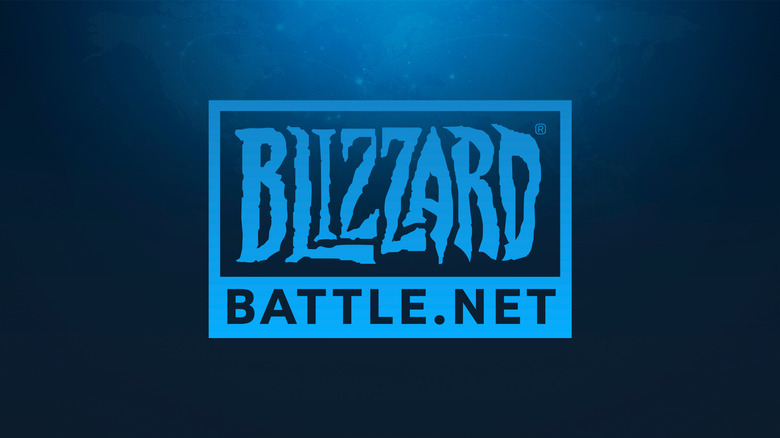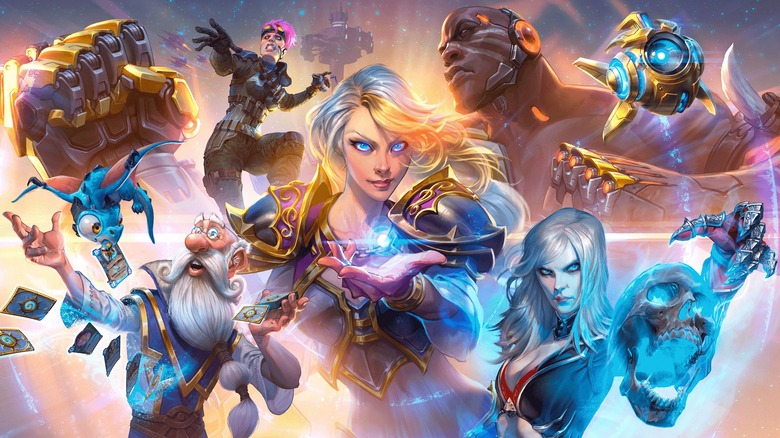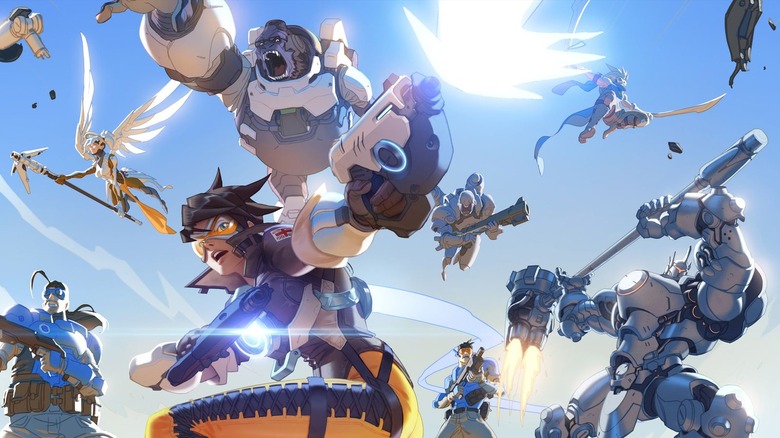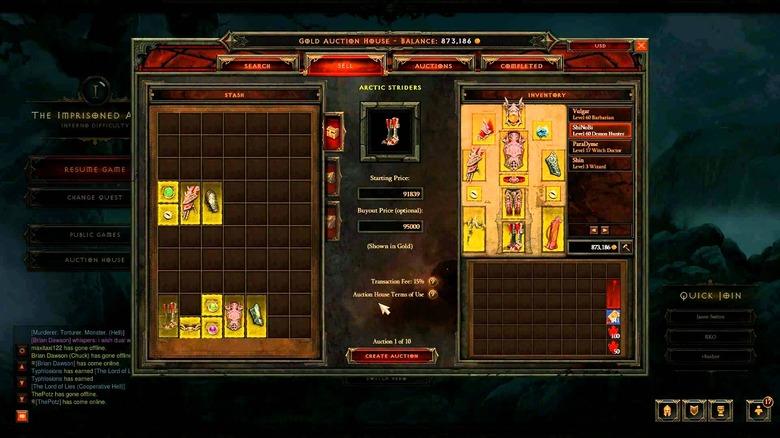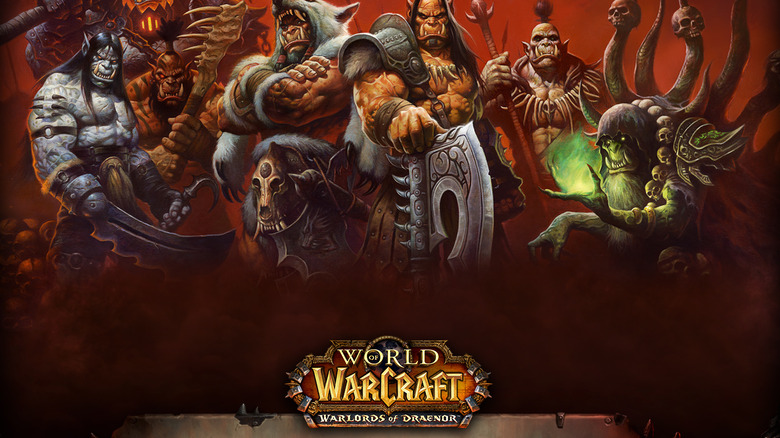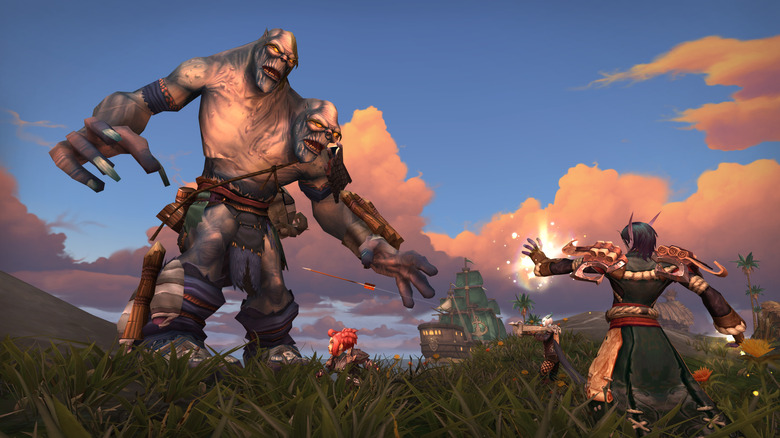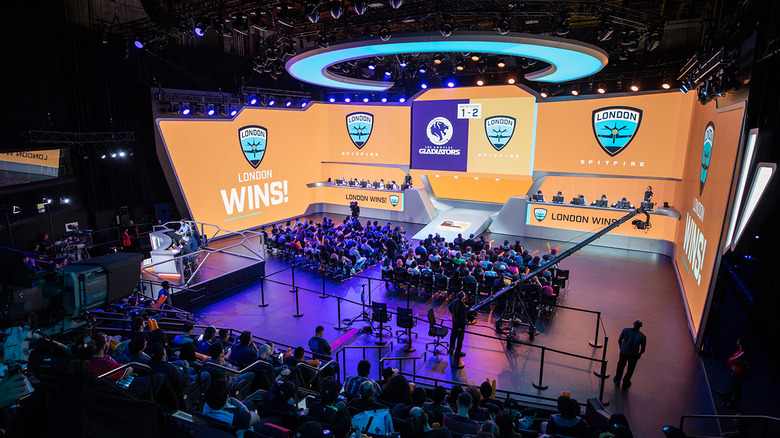Blizzard Entertainment's Biggest Mistakes
Blizzard Entertainment is one of the most storied names in video games, with a number of legendary franchises in its catalogue. If you've ever played a big game with "-craft" in the title — save for Minecraft — there's a good chance Blizzard was behind it. There's Warcraft, World of Warcraft, and StarCraft, to name a few. And Blizzard is also responsible for the Diablo series, and more recently, Overwatch.
It's safe to say that Blizzard is pretty good at making video games. But the company's stellar track record hasn't come without some setbacks.
Very few game developers and publishers have gotten by without making a few big mistakes. And Blizzard certainly has some doozies in its history. They range in size and scope. Some were taken care of quickly before serious damage was done. But others languished on over time, sapping Blizzard of immense amounts of money.
We're going to look at them all today so that you have the full story of how Blizzard's fared over the years. There's plenty worth celebrating about the company. But the mistakes are worth looking at, too. After all, mistakes are often a learning opportunity.
Hopefully Blizzard has used these to learn.
Trying to drop its Battle.net branding
If you were starting a video game company, you'd probably kill to have the Battle.net domain name. It just fits the game industry so well, especially if your plan is to develop, say, strategy games centered around war. Or large-scale MMORPGs.
Blizzard was fortunate enough to secure Battle.net in 1996, and it built an online presence around it. Battle.net later became the backbone for Blizzard's online multiplayer experiences, with a Battle.net launcher serving as a hub for launching all of Blizzard's titles.
But then the company did something strange. In 2016, Blizzard announced that it was rebranding Battle.net to something different. That something different was simply, Blizzard. That's what the launcher icon said. But it didn't really take hold.
A year later, Blizzard went back on its efforts to do away with Battle.net. With the launch of Destiny 2 on the platform, Blizzard fully embraced the name it had planned to scrap, and Battle.net lived to fight another day.
The Real ID forum fiasco
Online forums can be pretty hit or miss. In some circumstances, you can have great communities that share with each other and interact in positive ways. But in other instances, these forums can take a nasty turn and bring out the worst in humanity. A lot of the latter has to do with anonymity. It's far easier to post derogatory content when you can't be identified. So people don't feel the negative consequences of sharing such content behind a fake name.
That was Blizzard's thinking when it decided to institute a Real ID policy on its forums.
The Real ID initiative was simple: anyone who posted on Blizzard's online forums had to use their real name. The thinking was that having a real name attached to content would keep the community in check and promote better behavior. But fans of Blizzard were immediately skeptical for a number of reasons. Some felt real names meant they had to "break character" in games like World of Warcraft. And others were simply concerned about being stalked by other forum members.
After hearing enough players come out against the move, then-CEO Mike Morhaime killed the Real ID policy.
Keeping Titan alive for far too long
When you're a company like Blizzard, you're used to creating amazing video games. It seems to come naturally after a while. You start a project, you finish it, and the game suddenly has millions of fans. That always seemed to be the Blizzard formula.
One game, however, vexed the company beyond saving. No matter how much Blizzard tried, it could not shape the game into something it felt worthy.
That game was Titan.
According to Kotaku's Jason Schreier, Titan was built to be a science-fiction MMO that mixed two different worlds: real life, where a player would have to hold down an everyday job; and a "shadow world," where players would don their equipment and go to battle.
Blizzard kept at Titan for years, trying endlessly to make the game work. But it ultimately couldn't. Former Blizzard CEO Mike Morhaime told Polygon that Blizzard asked itself "whether that's the game we really wanted to be making. The answer is no."
The work wasn't all for naught, though. From Titan's ashes rose a game called Overwatch. You might have heard of it.
Diablo 3's auction house
Blizzard's Diablo 3 had a whole lot of problems when it first released. To start, there were massive server issues that prevented players from logging in at launch. There were complaints about the way the game's difficulty scaled. And good loot didn't seem to drop that often.
But what players hated most of all was Diablo 3's auction house, which was essentially a pay-to-win store where players could spend real-life money on items that made them better in game.
To give you some context, the auction house was sort of like Eververse in the Destiny franchise, but if that store sold powerful weapons and armor instead of cosmetic trinkets. Destiny players would be up in arms. Just as Diablo 3 players were about the auction house.
The auction house was undeniably "pay to win." And after the outcry became too loud to ignore, Blizzard took action. In a statement released to the press, production director John Hight stated that the auction house "undermines Diablo's core game play." And soon after, the auction house was removed entirely.
Lack of support following WoW's Warlords of Draenor release
For a game that's gone on as long as World of Warcraft, you'd have to imagine that Blizzard has gotten pretty good at supporting it. The game has seen a number of expansions chock full of content. And that's a lot of money, too. Think about it: there are players who've been there since the start, paying a monthly fee for access to the WoW world. For well over a decade.
But Blizzard definitely dropped the ball with support following one of those expansions. And the company paid a hefty price.
The Warlords of Draenor expansion to World of Warcraft released in November 2014. It seemed like a typical WoW expansion at first. But something was off. It didn't affect the hardcore players as much, but more casual fans noticed it right away. There wasn't a lot to do for novice players.
Why? Because Warlords of Draenor had to be turned around a lot more quickly than past expansions. Blizzard wound up having to cut some content corners, and what ultimately shipped was an expansion that didn't offer a lot to a large portion of World of Warcraft's user base.
Subscribers started dropping like flies. And World of Warcraft had to go through a pretty tough period before its 2016 Legion expansion righted a lot of the wrongs.
Its controversial Warden software
Companies like Blizzard have a pretty vested interest in shutting down cheaters. Cheaters can negatively impact the game experience for others. And if cheating really gets out of hand, some players may simply throw their hands up in the air and walk away. When those players are paying customers, like they are for those who partake in World of Warcraft, that's a problem.
To combat cheating, Blizzard introduced software it called Warden. And security experts immediately cried foul.
Anti-cheat software programs aren't uncommon in online games. But security experts, and then gamers, took issue with exactly how much watching the Warden was doing. According to security expert Bruce Schneier, he watched Warden open up a number of unrelated processes on his computer, including his email program and PGP key manager.
"This behavior places the Warden client squarely in the category of spyware," Schneier said.
Unfortunately for this story, there's no happy ending here. Blizzard didn't hear the outcry of its fans and come up with a better solution. Warden still very much exists in modern Blizzard titles.
It's something you might want to keep in mind the next time you load up Overwatch on your PC.
The huge security vulnerability it left in its biggest games
You may have read the last section and asked yourself, "What's the big deal?" You might not care if World of Warcraft can peek at the email program you're running. But the risk lies not in what Warden can see, necessarily, but what it can see if another serious vulnerability exists that can help someone access that information.
Case in point: a Google security researcher discovered earlier this year that nearly every Blizzard title suffered from a "DNS rebinding vulnerability" that could use Blizzard's software update program for nefarious means.
Had someone been able to make use of the vulnerability, they could have potentially dropped "malicious files" onto systems, according to Engadget, or even accessed a user's network files.
Expand the potential danger to include Warden and what could have been done to users had someone found a way to turn Blizzard's anti-cheat software against them, and you'll see why so many security experts were up in arms about just how nosy the Warden software was and is.
Charging a huge franchise fee for teams to join the Overwatch League
You probably got the idea from some of the stories above, but in case you didn't, let us remind you: Overwatch is a very big game for Blizzard right now. Since its launch in 2016, Overwatch has been a consistent performer in terms of popular online games. In fact, years after its release, it still regularly places in the top ten most-watched games on Twitch.
Overwatch is a fun game to, well, watch. It's a natural fit for esports. So it's no surprise that Overwatch has a thriving competitive community — one that Blizzard actively supports.
But wow, has Blizzard made some serious errors with the Overwatch competitive scene.
The one that sticks out the most has to do with the Overwatch League. Blizzard has been insistent on charging exorbitant franchise fees for teams to join, and those costs have been a huge turn off. In fact, four major esports teams dropped out of Overwatch League entirely last year.
One of the great things about video games is how open they are. Anyone should be able to get in on the fun, get better, and one day play competitively. The Overwatch League's franchise fees are a form of gatekeeping, and they have the potential to hamper the Overwatch competitive scene as a whole.
Hopefully Blizzard thinks twice about charging them in the future.

